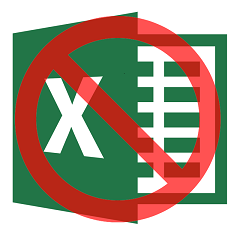Should Manufacturers Request Cargo Insurance?
This blog article takes a deeper look at freight insurance (also known as cargo insurance). Specifically, what is cargo insurance, and should shippers even request it.

For manufacturers using outside vendors for their transportation needs, cargo insurance plays a unique but vital role in protecting your business.
What Is Cargo Insurance?
Legally, all carriers must carry a minimum amount of insurance, known as carrier liability. However, carrier liability provides very limited coverage, and anything from natural disasters to vehicle accidents or even acts of war could damage your cargo. Therefore, shippers can request cargo insurance to protect their goods from loss, damage, or theft while in transit. Generally, goods are insured while being stored and while in transit, until they reach the buyer. This means cargo insurance kicks in once goods leave your manufacturing facility, while they’re transported or stored until they’re delivered to their final destination. As a shipper, it’s crucial to understand exactly what your insurance covers and make sure your business’ products are protected at all stages of the supply chain.
Does Cargo Insurance Have Limitations?
Yes, cargo insurance does have limitations. For example, when shipping via truck in the United States, cargo insurance does not provide protection against all losses a motor carrier may be liable for under the Carmack Amendment or common law. There is not a single, standard form of cargo insurance that a carrier can buy and be fully protected.
There are different types of cargo insurance policies, some going by names such as “all risks,” “broad form,” “legal liability,” and “motor truck freight.” Regardless of what the name might imply, none of these policies provides complete protection against the Carmack Amendment and common law liability. For example, certain types of cargo are excluded, only specific equipment and terminals are covered, losses caused by certain events are not covered, or coverage applies only if a service is performed in a certain way. It is key for manufacturers to understand what cargo is excluded from their coverage, and to make sure their business’ goods don’t fall under these exclusions. In addition, shippers need to make sure the equipment and terminals used for transportation are covered by the insurance policy.
Overall, it’s crucial for shippers to document their cargo’s value in case of disputes, losses, or damages. It may also be necessary to work with a lawyer and insurance agent to fully understand your policy and make sure you are protected.
So, Should You Request Cargo Insurance?
Now that we’ve explored what cargo insurance is, as well as how coverage works; hopefully, you realize its importance when it comes to shipping. If not, think of the consequences of not having cargo insurance. What would happen to your company if an entire shipment were lost? What if your shipment is being transported via container vessel and the ship sinks? Under maritime law, your company is responsible for a share of the losses. Without cargo insurance how would your business pay for the losses and how would that affect your bottom line?
Outsourcing transportation services to external vendors works as a great solution for many manufactures. However, accidents happen; therefore, shippers need to request cargo insurance to protect their business when errors occur.
This guest blog post is provided by Ben Goldwasser from Spendrix, Inc. Thank you, Ben.



